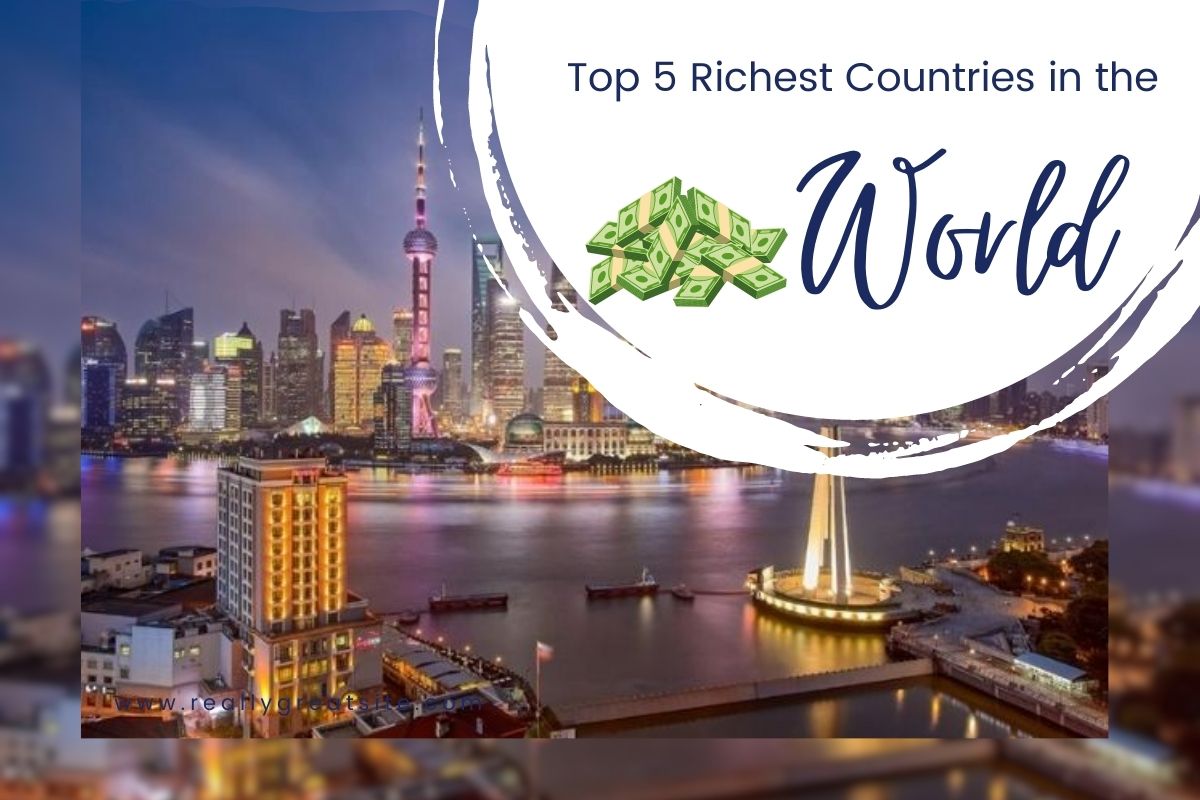Have you ever wondered what sets the world’s wealthiest countries apart from the rest? What makes them so prosperous and successful? From the glistening skyscrapers of Singapore to the vast oil reserves of Kuwait, these nations have achieved unparalleled levels of economic growth and development. Join us as we take a closer look at the top 5 richest countries in the world and explore what makes them truly unique. Get ready for some serious wanderlust-inducing inspiration!
Table of Contents
Qatar
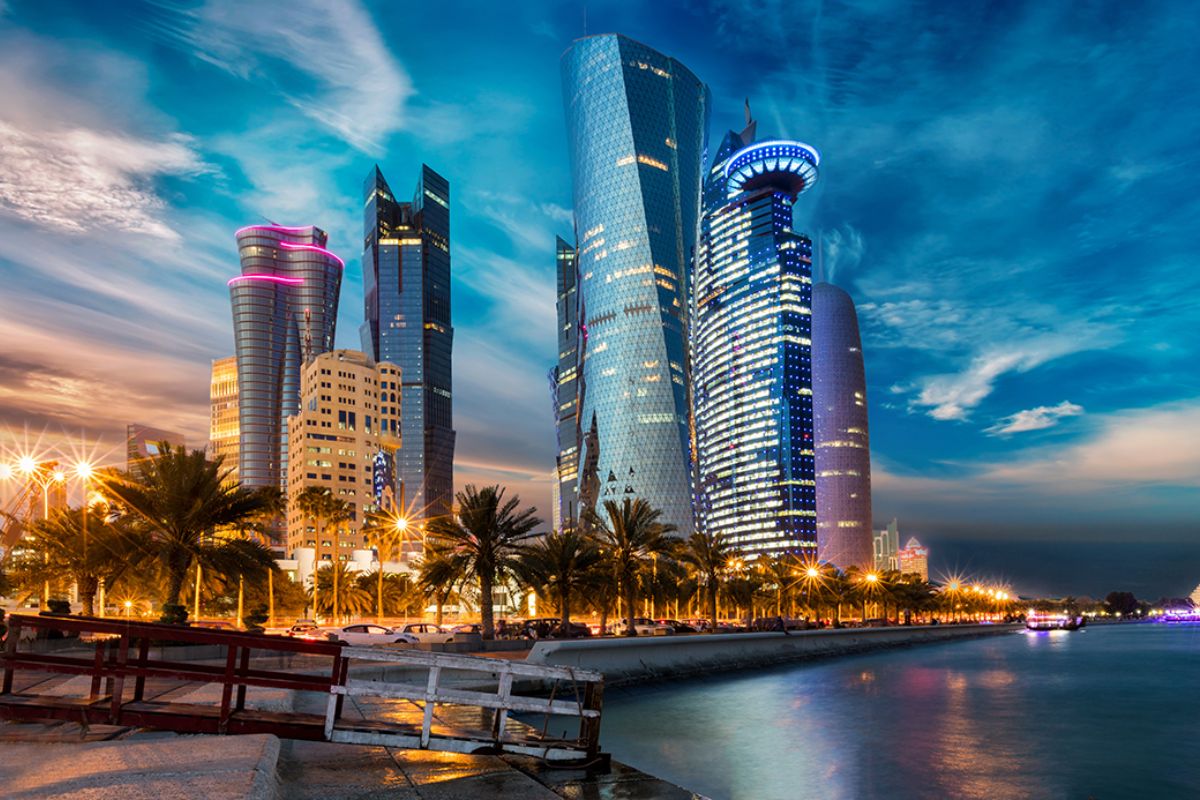
Nestled in the heart of the Arabian Peninsula, Qatar is a small but mighty nation that has quickly emerged as one of the world’s wealthiest countries. With its booming oil and gas industry, it has managed to achieve an impressive GDP per capita of over $60,000 – making it one of the Richest Countries in the world.
But what sets Qatar apart from other oil-rich nations? For starters, its government has made significant investments in education and infrastructure – resulting in a highly skilled workforce and modern transportation networks. It’s also home to some truly breathtaking architecture, including the iconic Museum of Islamic Art designed by renowned architect I M. Pei.
Despite being relatively small in size, Qatar is home to a rich cultural heritage with influences from Bedouin traditions and modern Arab culture. Visitors can explore ancient forts and souks or indulge in luxury shopping experiences at high-end malls like The Pearl-Qatar.
Whether you’re looking for adventure or relaxation, Qatar offers something for everyone – from desert safaris to luxurious beach resorts. It’s no wonder this tiny Gulf state has become such an economic powerhouse!
Singapore
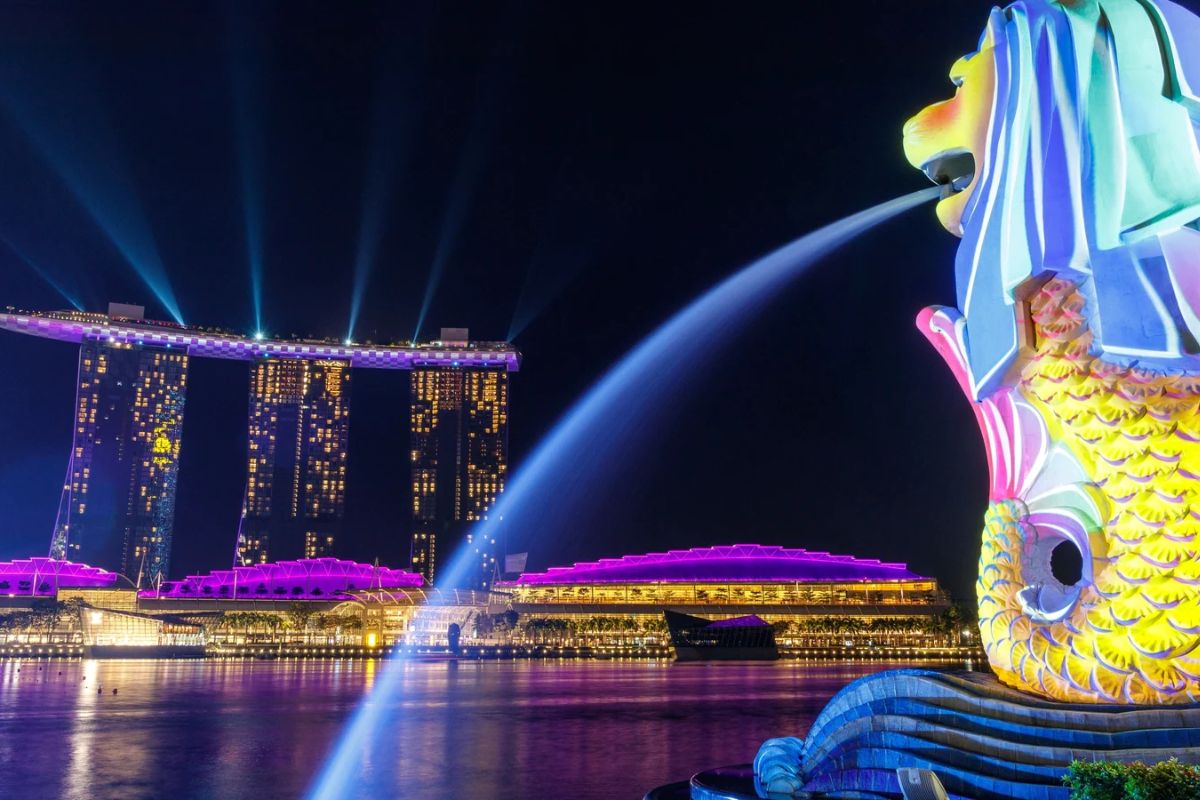
Singapore is a small city-state that has managed to become one of the Richest Countries in the world. Its economy is heavily based on finance, trade, and tourism. One thing that sets Singapore apart from other countries is its strategic location as a key transit point between East and West.
The government’s policies have been critical in transforming Singapore’s economy over the past few decades. The country offers low taxes, pro-business regulations, and a highly skilled workforce. As a result, many multinational corporations choose to set up their headquarters in Singapore.
In addition to its strong economy, Singapore also boasts an excellent quality of life for its citizens. The country has invested heavily in education and healthcare systems which are among the best in the world. Furthermore, it’s known for being one of the safest cities globally with very low crime rates.
Another unique feature of Singapore is its focus on sustainability and green initiatives. Despite being densely populated with high-rise buildings everywhere you turn, there’s an abundance of parks and green spaces throughout the city-state.
All these factors combined make Singapore stand out as one of the most successful nations globally despite its relatively small size compared to others on this list
Brunei
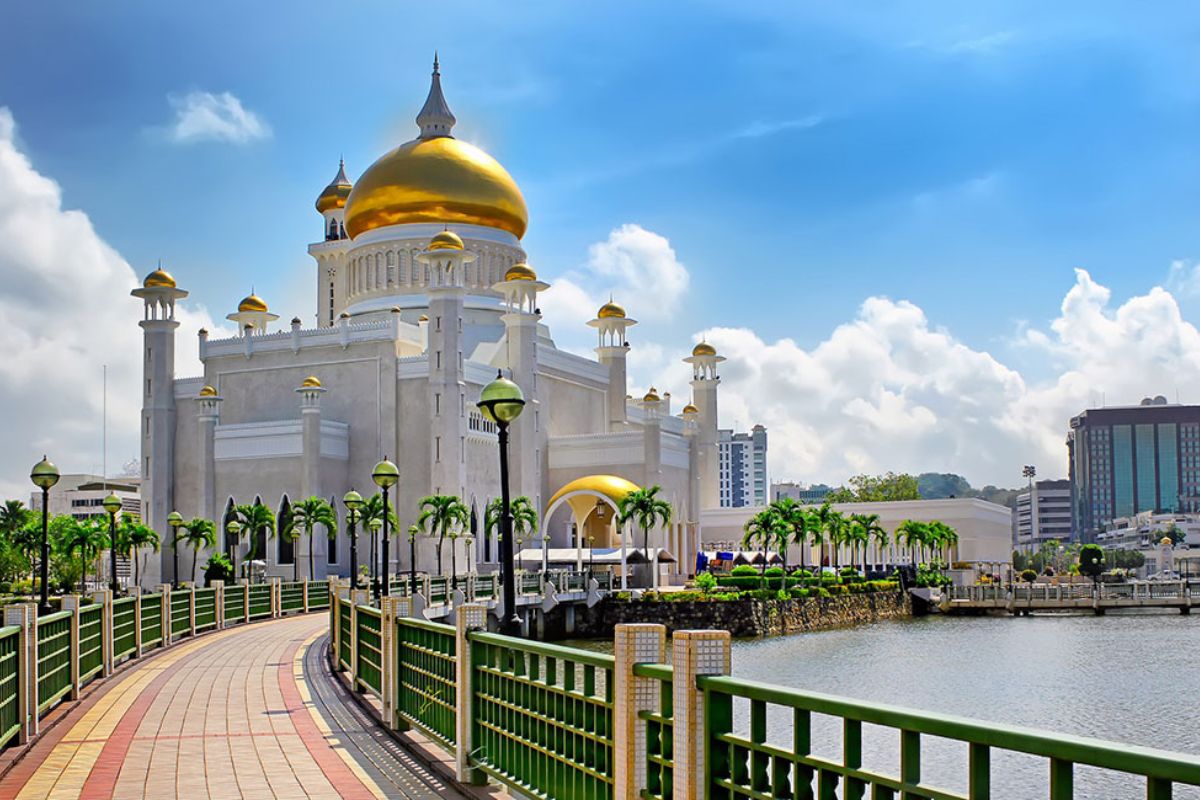
Brunei, a tiny nation located on the island of Borneo in Southeast Asia, might not be as well-known as some of the world’s wealthiest countries. However, this small country has one of the highest GDP per capita rates globally and enjoys significant wealth thanks to its abundant oil and natural gas reserves.
One unique aspect that sets Brunei apart from other wealthy nations is its commitment to preserving traditional Islamic values while embracing modernization actively. The Sultanate of Brunei has invested heavily in education and healthcare for its citizens, providing free medical care and education from primary school through university level.
Another interesting fact about Brunei is that it remains an absolute monarchy with the Sultan serving as both head of state and government. Despite being under strict authoritarian rule, Brunei maintains a high standard of living for its residents with no income tax or sales tax.
Although small in size compared to other wealthy nations like Qatar or UAE, Brunei stands out for its unique blend of traditional Islamic values and modernization efforts aimed at improving citizens’ quality of life.
Kuwait
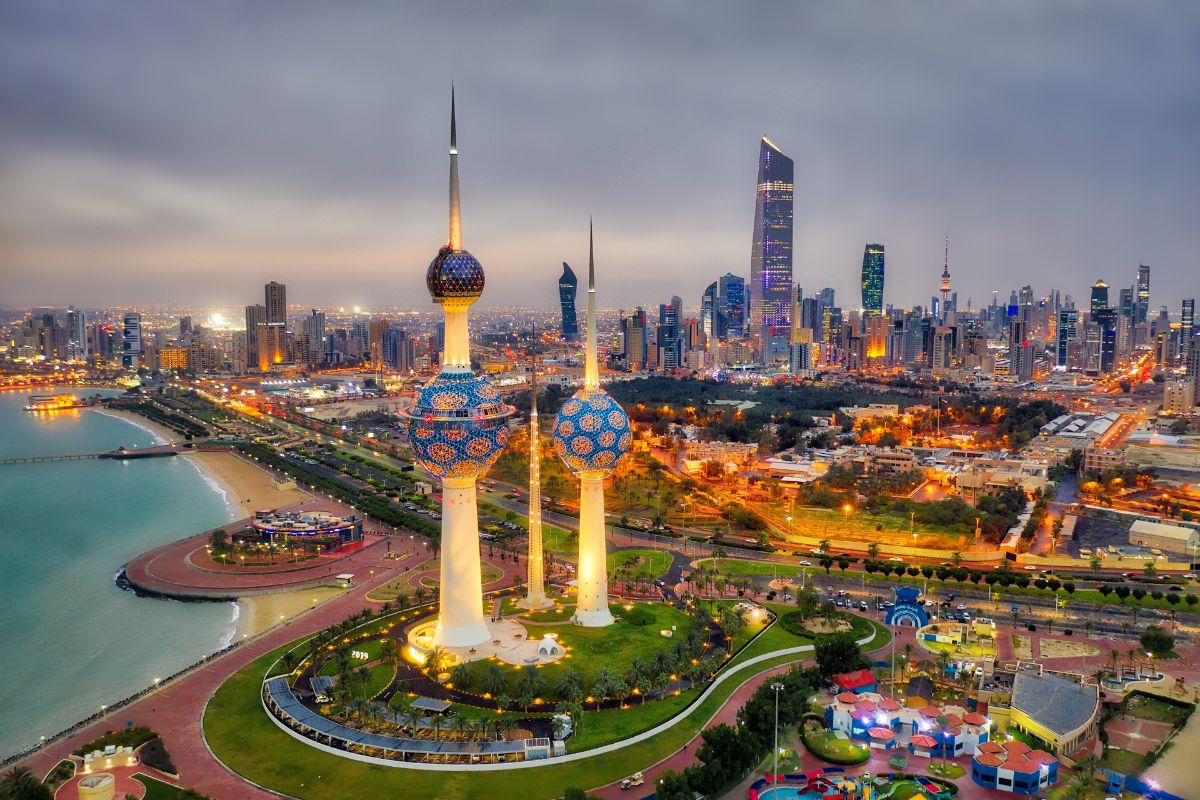
Kuwait is a small country located in the Middle East, bordered by Saudi Arabia and Iraq. Despite its size, Kuwait boasts one of the largest oil reserves in the world. In fact, it’s estimated that more than 6% of all known oil reserves are located within this tiny nation.
The discovery of these vast oil deposits has transformed Kuwait into a wealthy country with one of the highest GDPs per capita globally. The government uses these funds to invest heavily in education, healthcare, and infrastructure development projects.
Besides being an oil-rich country, Kuwait also serves as a financial hub for both local and foreign businesses operating across the region due to its lenient regulations on businesses establishment.
Moreover, Kuwait has come up with several initiatives aimed at diversifying its economy away from dependence on crude-oil exports such as investing in the travel and tourism industry- which is currently booming- thus attracting tourists worldwide who seek luxury vacations or cultural experiences
While there are many factors contributing to Kuwait’s wealth and success today; it’s clear that natural resources played an enormous role. However, looking forward there seems to be much potential for further growth & prosperity through business ventures beyond their traditional industries.
United Arab Emirates
The United Arab Emirates is an oil-rich nation located in the Middle East. The country has a population of over 9 million people and its government operates as a federation of seven emirates, with Abu Dhabi serving as its capital city.
One thing that sets the UAE apart from other wealthy countries is its diversification efforts. While oil remains a major contributor to the country’s economy, the government has been investing heavily in other industries such as tourism, real estate, finance, and technology to ensure long-term sustainability.
Tourism plays a vital role in the UAE’s economy and attracts millions of visitors each year. Dubai alone welcomed over 16 million tourists in 2019 thanks to its world-renowned shopping centers and luxurious hotels. Additionally, Abu Dhabi hosts several cultural events throughout the year designed to showcase Emirati culture and heritage.
While tourism may be one factor contributing to the UAE’s wealth, another key driver is their strategic geographic location which places them at the crossroads between Europe, Asia, and Africa. This makes it an ideal hub for global trade activities resulting in significant investment into infrastructure projects like ports and airports.
While there are many factors that have contributed to making UAE one of the Richest Countries on earth; their forward-thinking approach towards diversifying their economy coupled with strategic investments make them stand out among others!
Why these countries are so wealthy
These top 5 Richest countries in the world have one thing in common: natural resources. Qatar, for example, is rich in oil and gas reserves while Brunei has extensive deposits of crude oil and natural gas. These resources form the backbone of their economies.
Additionally, these nations have made strategic investments over time to diversify their economies beyond just natural resource exports. For instance, Singapore has invested heavily in its port infrastructure and transformed itself into a regional hub for finance and commerce.
Another factor that sets these countries apart is their favorable business environment. They have created conducive policies and regulations to attract foreign investment which further boosts economic growth. Then look for the Richest Countries in the world with GDP per capita. This includes tax incentives, streamlined bureaucracy processes, and strong legal frameworks.
Moreover, education plays a significant role in shaping the wealth of these nations. Countries such as Kuwait invest heavily in human capital development by offering free education up to university level for all citizens which results in highly skilled workers who contribute to economic growth.
Political stability also plays an important role as it attracts foreign investors who are more willing to put money into stable regions with consistent policies that will protect their investments over long periods of time.
There isn’t any single reason why these countries are so wealthy but rather multiple factors including natural resources endowment coupled with strategic investments diversification of economy beyond traditional sources adoption businesses friendly environment through sound legislative framework investing strongly on education provision among other things helped them emerge at this position today!
What do they have in common?
One of the most interesting things about 5 of the Richest Countries in the whole world is that they all share a few common characteristics. While each country has its own unique history, culture, and economy, they have all managed to achieve incredible levels of wealth and prosperity.
All five of these countries are incredibly small in size compared to other nations around the world. Is Qatar the one of richest Countries in the world This means that their economies are often highly specialized and focused on specific industries or niches. For example, Qatar is known for its oil production while Singapore has become a hub for global trade and finance.
These countries are all located in strategic geographic locations that offer significant economic advantages. Many are situated near major shipping lanes or transportation hubs which makes it easier to import/export goods and services across borders.
These wealthiest nations have also invested heavily in education and innovation over the years. They understand that knowledge-based economies will be crucial for future growth and development so they’ve made substantial investments into research & development programs as well as higher education institutions. There is the richest country in the world by population.
Another key factor contributing to their success is political stability – many of these wealthy countries have strong governments with stable leadership which provides businesses with certainty about regulations/taxes etc., making them more attractive destinations for foreign investors looking to establish operations overseas.
Conclusion
The top 5 richest countries in the world by total wealth have a lot in common. They all have vast natural resources such as oil and gas and are strategically located near important trade routes. They also have stable economies with low unemployment rates and high levels of income per capita.
However, it’s important to note that while these countries may be wealthy, they still face challenges of their own. For example, income inequality is still a significant issue in some of these nations despite their wealth.
Nevertheless, exploring what sets these countries apart from others can provide valuable insights into how economic growth and development can occur on a global scale. By understanding what makes them successful, other nations can work towards implementing similar strategies to improve their own economies.
It’s clear that there is no one-size-fits-all approach when it comes to achieving economic success. However, by learning from the experiences of those who have achieved great prosperity like Qatar, Singapore Brunei Kuwait and United Arab Emirates we can hope for more equitable distribution of wealth across the globe.
